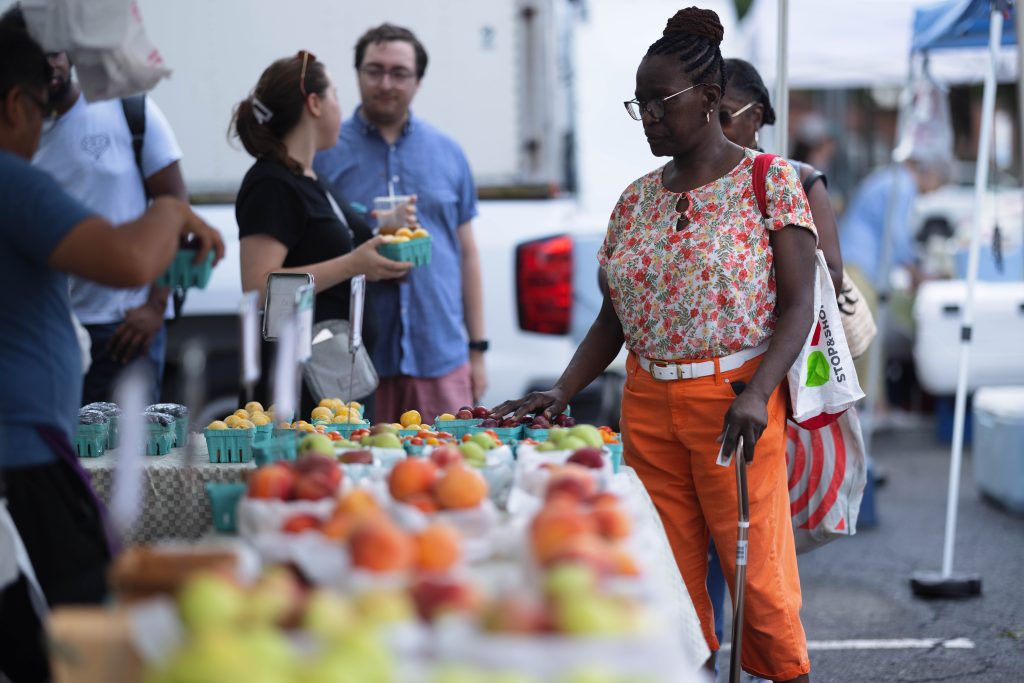Local Food
When Nonprofits Fill the Gap

Through the last week of October and into the beginning of November, courts and the federal government went back and forth over the funding status of the Supplemental Nutrition Assistance Program, or SNAP, during the continuing government shutdown. States, cities, and organizations fought for the necessary funds to be released; the Executive Branch resisted. The argument went all the way to the Supreme Court before an agreement was reached on November 9th to re-open the government through at least January, creating a path to restoration of benefits.
Caught in the balance of the uncertainty were the program’s 42 million recipients. Since its founding in 1964, SNAP’s impact has been profound. Each dollar paid in SNAP benefits generates $1.79 in economic activity, and studies suggest it reduces the prevalence, depth, and severity of poverty. There’s similar evidence of health and long-term food security benefits. As it hung in the balance for the first 10 days of November, stories of shaken community confidence in government support for economically vulnerable people surfaced.
The impact of the uncertainty trickles down from the federal government to states, and ultimately communities. Some states responded initially by directing support to food banks, while others (like Vermont and Rhode Island) also diverted state funds to direct financial aid. With the funding bill passed, all states are expected to eventually receive the full allotment of SNAP funds for the month – though many end recipients will likely receive payments several weeks late.
Without federal systems, and states lacking the requisite resources to fill the gaps, nonprofits flex to meet the moment. Sarah Miller - Executive Director of CitySeed, a Walden non-profit partner based in New Haven, Connecticut - says “The callousness of public systems is surpassed by the kindness and generosity of people stepping up”. CitySeed runs producer-only farmers’ markets, and they were the first in their state to accept SNAP for payment. Since November 1st, they’ve had lines down the block at the market opening. This moment, like COVID, creates significant challenges for organizations like theirs, but “When your next door neighbor is hungry, you bring them a plate…The work of nonprofits is grounded in the impulse to do what we can, when we can, even if it won’t provide all the things we need from public systems.”
Responding in crisis comes with long-term trade-offs however. Farm Fresh Rhode Island – another Walden nonprofit partner – doubled their normal match of SNAP funds (from 1:1 to 2:1) for the month of November, and saw farmers bring extra produce to their markets as donations. But resource reallocation can bring tension. “Right now, many nonprofits, including Farm Fresh, are trying to both address the urgent need and stay the course on long-term strategy…which creates a lot of pinch points – money, time, and staff capacity”, says Director of Advancement, Delite Primus. Indeed, Hanna Flanders - Director of Community Engagement at the Kearsarge Food Hub (another Walden nonprofit partner) - sees the long-term vision as intimately tied to what happens today: “The long game is about ensuring how we grow our food can sustain future generations, so we’re not borrowing from the future to feed ourselves today.”
Our mission - to enable positive and lasting change in the ecosystems that sustain us, beginning with food – is about enabling the resilience of partner organizations like CitySeed, Farm Fresh Rhode Island, the Kearsarge Food Hub, New Hampshire Hunger Solutions, the New Hampshire Center for Justice & Equity, and many more through financial support and interconnected community. The importance of that work continues to grow. Legislation passed earlier this year will reduce SNAP funding by 20% over the next 10 years and introduce new work requirements for adults with children and adults over the age of 55. Millions of people who rely on SNAP today will lose access as a result of these changes. Your deposit dollars at Walden generate impact, but so does direct support. This Thanksgiving, consider donating to the nonprofits working on issues of food access and security in your community.



